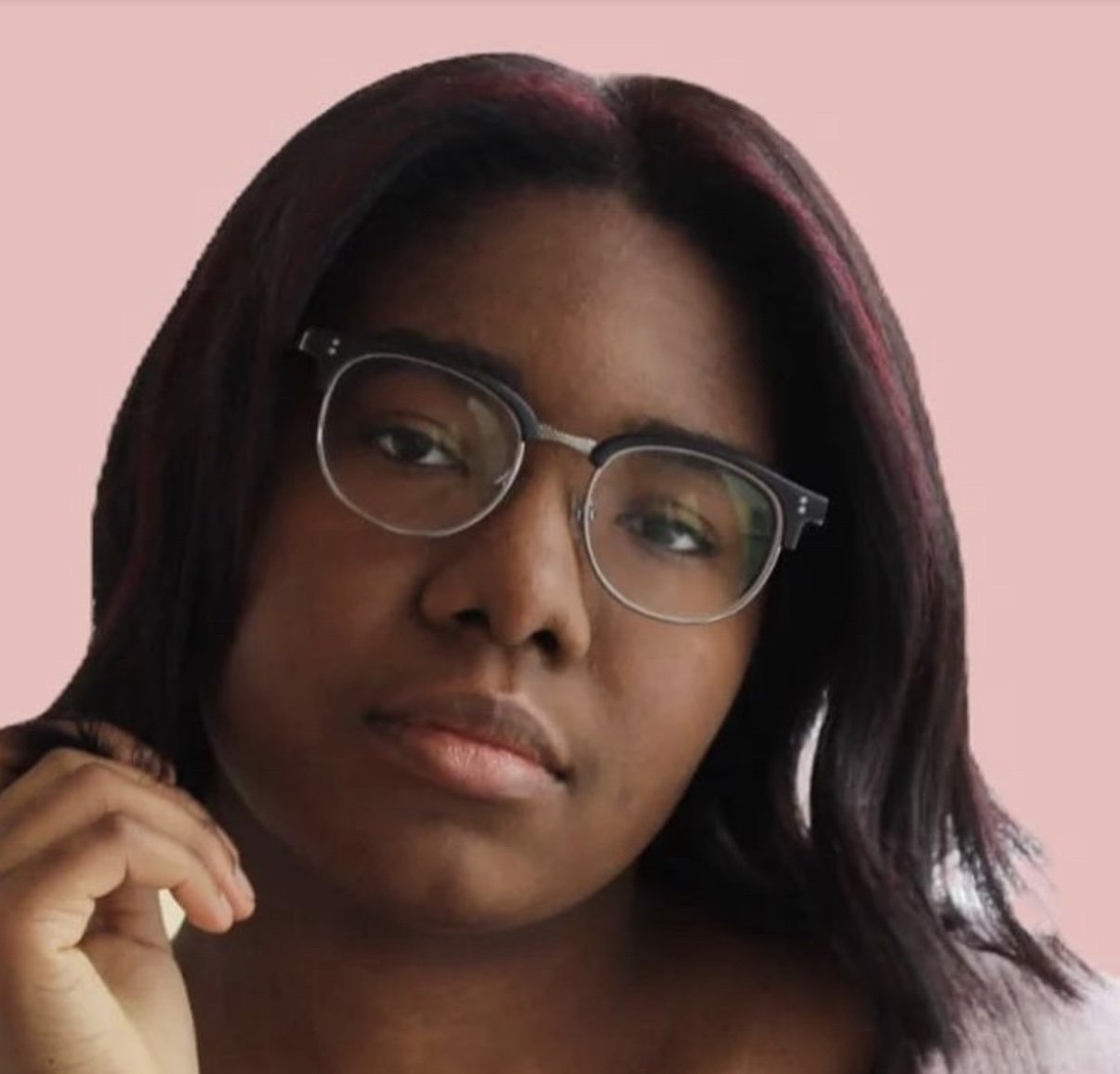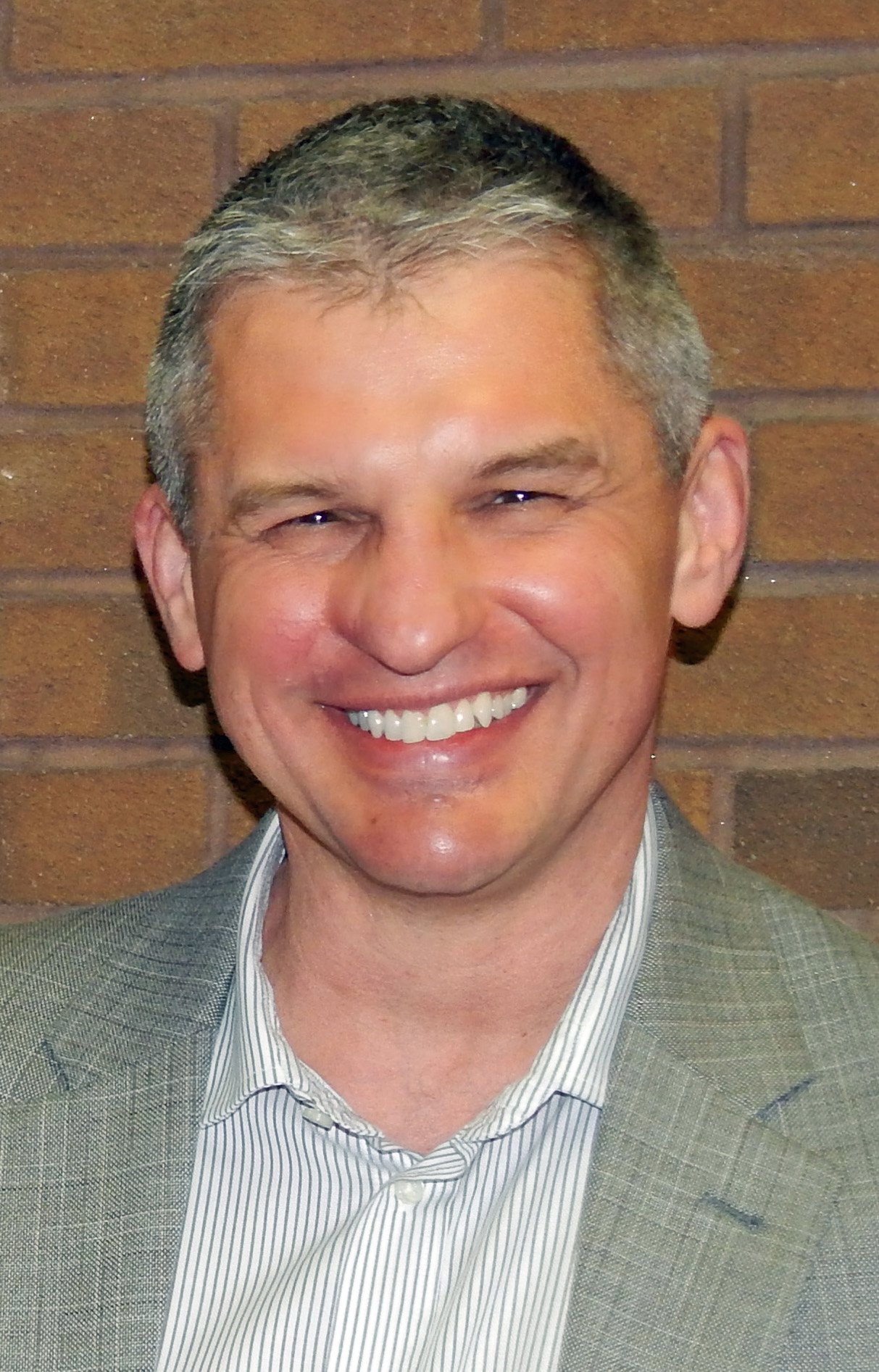Speaker Biographies
Keynote Address: A Snapshot of Disability Throughout Academia
[Image Description]: Isa-Bella smiles at the camera in front of a lake and tall grass. She is wearing a blue sweater and has long brown hair.
Isa-Bella Leclair
Isa-Bella (she/her/elle) is a project manager who works for the Government of Canada in a Universal Accessibility team that works on improving the accessibility of the built environment within the Parliamentary Precinct in Ottawa. She is a certified professional with the International Association of Accessibility Professionals (IAAP) and a designated professional with the Rick Hansen Foundation Accessibility Certification.
She completed her Bachelors and Masters degrees in Civil Engineering at the University of Ottawa. At the end of her undergraduate studies, she started thinking about the responsibilities of civil engineers and other design professionals towards the accessibility of the built environment. She dedicated her graduate studies and research to the subject, completing a thesis titled "A holistic civil engineering approach to accessibility: Addressing systemic barriers in the built environment".
“I am passionate about applying my lived experiences and my love for engineering to bring improvements to the built environment, learn from other people with disabilities and bring down existing barriers. I was born with a complex congenital vascular anomaly called Parkes Weber Syndrome. This has greatly malformed the blood vessels in my right leg, making it significantly larger than my left leg. Parkes Weber Syndrome also affects other parts of my body, resulting in primary lymphedema (malformation of the lymphatic system), congenital heart disease and other chronic health conditions. All of these conditions greatly affects I interact with the built environment, with my education and with my current career. Being a white settler I am particularly interested in how I can amplify the voices of BIPOC with disabilities, knowing that intersection changes how disabilities are experienced. As a queer and asexual person, I am also intrigued by people with disabilities' relationships with others, their sense of community and how that affects their sense of self in the world.”
Panel #1: Finding a Balance that Works for You
[Image Description]: Jules has blonde hair and short bangs, and is wearing round glasses, a black turtleneck, and a gold chain.
Jules Koncovy
Jules Koncovy (she/her) is a Bachelor's and Master of Social Work graduate from McMaster University. She is currently completing a Master of Health Information Sciences at Western University. She is passionate about working to make academic and medical environments more accessible to Deaf and Hard-of-Hearing people. Jules’ personal, professional, and academic life is informed by her own lived experience as a deaf person with cochlear implants, and other disabilities. In her downtime, Jules likes to play hockey and read fantasy books.
[Image Description]: Corbin smiles into the distance in front of a large set of windows.
Corbin McBride
Corbin (he/him) is Hard of Hearing. Corbin is a recent graduate from the Arts & Science program at McMaster University, and currently is a first year nursing student at Toronto Metropolitan University. His previous experience includes 3+ years working in emergency first response and first aid. Some of his interests include volleyball, his cats, and learning how to sew.
[Image Description]: Michelle smiles at the camera in a professional headshot, in front of a solid blue background. They are wearing a brown blazer and round glasses.
Michelle Liu
Michelle Liu (they/them) is an Ottawa-based, Queer, racialized, and non-binary engineer, soon-to-be lawyer, speaker, consultant, and researcher. Michelle earned their Honours BASc and MASc in civil engineering from the University of Waterloo, after which they worked in construction and design for various national and multi-national consulting engineering firms. Michelle’s experience of racist, homophobic, and gender-based violence in engineering empowered them to pursue their law degree (JD ’23) and engineering PhD simultaneously at the University of Ottawa. Michelle’s engineering PhD research, for which they received both the Vanier Canada Graduate Scholarship and the Pierre Elliott Trudeau Foundation Scholarship, uses sociolegal frameworks to understand the relationship between technological designs and the dominant norms in engineering such as masculinity and meritocracy.
[Image Description]: Tam wears glasses, a striped shirt, and has a rainbow flag painted on their cheek.
Trần Thanh Tâm (Tam) Phạm
Trần Thanh Tâm (Tam) Phạm (they/she/chanh) is a Queer neurodivergent PhD candidate at Dalhousie University, with a Master’s from University of Toronto. Their research uses different biophysical techniques to characterize peptide dynamics in their interaction with cell membrane. Outside of research, having experienced barriers in academia, they are an advocate and a science communicator whose work centers around promoting biophysical education, science policy promoting youth engagement and accessibility in STEM education. In their free time, they dance and paint to stim themselves away.
Panel #2: To Disclose or Not to Disclose
[Image Description]: Alex smiles over their shoulder at the camera in front of a line of multi-coloured buildings.
Alex Matos
Alex Matos (they/them) is a soon-to-be graduate of the Nanotechnology Engineering program at the University of Waterloo. They are a queer, non-binary individual whose work focuses on the development of sustainable material in hopes of contributing to a more environmentally conscious world. Beyond their studies, Alex is actively involved in creating a more inclusive and accessible environment at the University of Waterloo as well as in the field of engineering. They are an avid volunteer and advocate of Equity, Diversity and Inclusivity (EDI) initiatives within the Waterloo Engineering Society. Recently, they had the opportunity to organize a conference centred on diversity in engineering, providing a platform for open conversations. Overall, Alex’s goal is to create a safer and more equitable environment within the field of engineering that welcomes and celebrates unique stories and perspectives.
Catherine Dumé
Catherine Dumé (she/her) is a political science student at University of Toronto, an accessibility Correspondent for The Varsity newspaper, the student Co-Chair of Accessibility Services’ Advisory Committee, and a Co-Founder and former President of University of Toronto’s Accessibility Awareness Club. She plans to continue into her graduate studies researching disability citizenship as a political theorist.
[Image Description]: Dr. Dan Wolczuk smiles in a professional headshot photo, wearing glasses and a black suit and light blue shirt with a striped tie.
Dr. Dan Wolczuk
Dan Wolczuk (he/him) is a lecturer and education researcher in the Faculty of Mathematics and the University of Waterloo. His research focuses on mathematical education and on teaching learning skills to students. He is known for his enthusiasm and passion for teaching, and his dedication to his students and their learning. It is these qualities which helped him win the University of Waterloo's Distinguished Teacher Award and the prestigious Canadian Mathematical Societies Excellent in Teaching Award.
[Image Description]: Dr. Eliza Chandler stands against a concrete wall, smiling over her shoulder at the cityscape of high rise buildings behind her. She has short brown hair and is wearing a blue peacoat.
Dr. Eliza Chandler
As an Associate Professor in the School of Disability Studies at Toronto Metropolitan University, Eliza Chandler (she/her) leads a research program that animates disability arts and its connections to disability rights and justice. Chandler teaches in the areas of disability arts, critical access studies, social movements, and crip necropolitics and participates in a number of research projects in these areas, including co-directing the SSHRC-funded partnership project, Bodies in Translation: Activist Art, Technology, and Access to Life. Chandler regularly gives lectures on disability arts, accessible curatorial practices, and disability politics in Canada and she is a member of the Royal Society of Canada’s College of New Scholars. Recent publications include Introduction to Disrupting Culture in Dispatches From Disabled Country by Catherine Frazee.
Panel #3: Dynamic Disabilities
[Image Description]: Alicia wears a blue sweater, covered slightly by long brown hair, and a checkered skirt.
Alicia Abbott
Alicia Abbott is a fourth-year student majoring in political science at the University of Toronto who Is passionate about bringing accessibility to educational environments. She is currently President of University of Toronto Accessibility Awareness Club (U-TAAC), a member of Accessibility Services’ Advisory Committee, and volunteers for accessibility focused organizations including Epilepsy Toronto and the FSHD Society. She will be attending law school fall 2024.
[Image Description]: Omar smiles at the camera wearing a suit and tie.
Omar Hamdan
Omar (he/him) is a curious Developer at TD Bank over the past four years, focusing on back-end (business logic) development. Omar also helps out at McMaster University with web accessibility from time to time as part of a user testing pilot. Hobbies include listening to music, reading books, gaming, and programming when his brain isn’t fried after work.
[Image Description]: Ryan smiles at the camera. He is a man with short brown hair, a brown beard, and is wearing a white button-down shirt with a black tie.
Ryan Joslin
Ryan (he/his) is a web accessibility specialist who has a permanent physical disability due to a spinal cord injury. In 2020 he completed his Honours Political Science (B. A.) at McMaster University. In addition, he graduated from Mohawk College in 2021 with a postgraduate certificate in Accessible Media Production. He currently works as an End User Tester at Fable and as a Learning Technologies Analyst within the McPherson Institute at McMaster University.
[Image Description]: Tommy wears black rimmed glasses, a black turtleneck, and a leather jacket while taking a selfie.
Tommy Akinnawonu
Tommy Akinnawonu (he/him) is a first-year biomedical sciences student at Toronto Metropolitan University. As a Queer Disabled Black youth, Tommy prides himself on his identity, and he welcomes this opportunity to uplift the voices of others like him. In his spare time, he enjoys trinket collecting and fashion styling. Tommy is thrilled to be a moderator with the Ontario Summit for Students with Disabilities and looks forward to meeting you all.
Closing Remarks
[Image Description]: Dr. DeVidi smiles at the camera in a professional headshot.
Dave DeVidi
Dave DeVidi is the Associate Vice-President, Academic at the University of Waterloo. He has been a professor in the department of philosophy since 1996. Most of his research work has been in logic and philosophy of mathematics. He has spent decades volunteering for organizations supporting autistic adults and adults with developmental disabilities so they can lead self-directed, satisfying lives in their communities --- “you can’t lead a good life if you can’t lead that life” is one of his favorite slogans. On the basis of that work he has more recently published research in the philosophy of disability, primarily focusing on issues related to citizenship, communication, decision-making, and autonomy. He was the inaugural winner of the University’s Equity and Inclusivity award.
Moderated Fishbowl: Systemic Barriers, Ableism, and Your Stories
[Image Description]: Remington smiles at the camera in a professional headshot.
Remington Zhi
Remington Zhi (they/he) is a disabled undergraduate student at the University of Waterloo. They have many years of experience in advocacy and community organizing, and believes in building bridges between movements championing different issues and taking an intersectional lens. They are currently working in disability advocacy and equity related roles at both the Waterloo Undergraduate Students Association and Faculty of Mathematics at the University of Waterloo.
[Image Description]: Emma sits on a bench next to her black Labrador service dog, Marlowe. Marlowe sports a blue service vest and is licking Emma’s face. Emma wears a back brace.
Emma Collington
Emma Collington (she/her) is a PhD candidate in molecular genetics at the University of Waterloo. She studies mitochondrial metabolism in anaerobic eukaryotes, with a particular interest in parasitic helminths. Emma has a genetic connective tissue disease caused by mutations in collagen and fibrillin, which results in her joints, organs, and blood vessels being too elastic. When not studying or sleeping, Emma is involved in her local disability community, and volunteers with the program that trained her own service dog, Marlowe.















